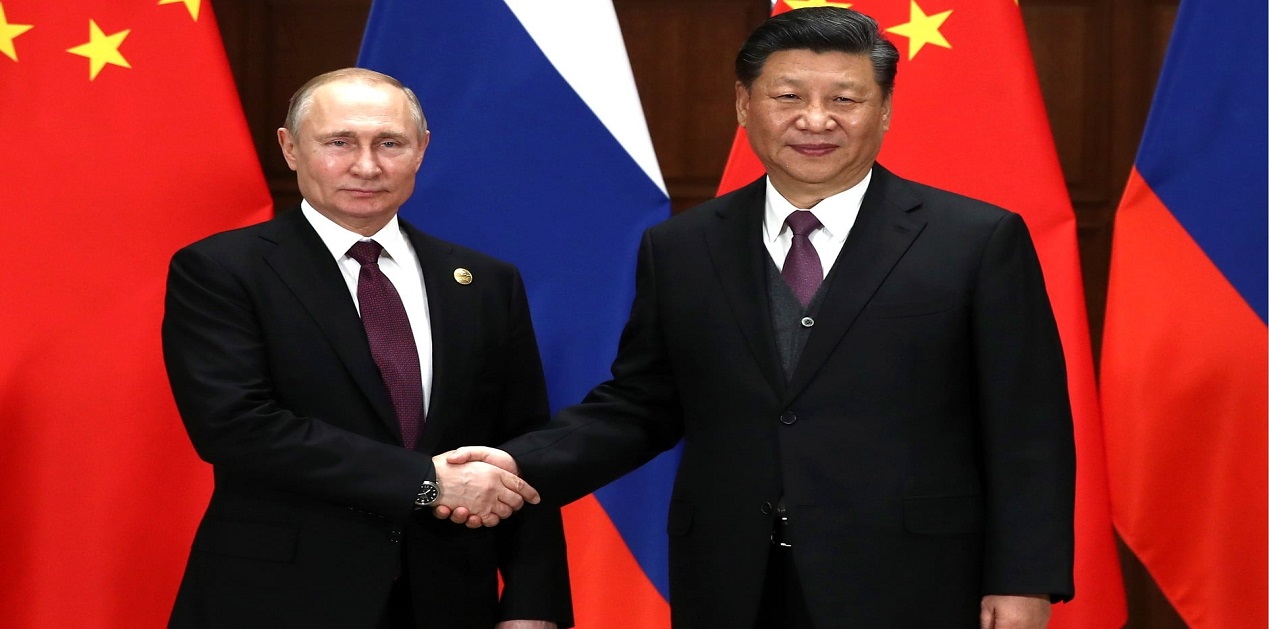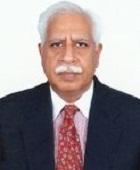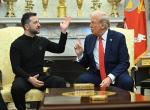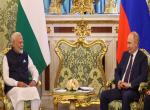A brief background of world events will help set the context for assessing this relationship. Without delving into why Russia did what it did in Ukraine, over the past few years we have witnessed major powers attempting to consolidate or expand their territory – as in the case of China – or their areas of influence.
This prompts recall of the rather prescient remarks made by former British Prime Minister Tony Blair in October 2011. He said “The starving, the wretched, the dispossessed, the ignorant, those living in want and squalor from the deserts of Northern Africa to the slums of Gaza, to the mountain ranges of Afghanistan: they too are our cause. This is the moment to seize. The kaleidoscope has been shaken. The pieces are in flux. Soon they will settle again. Before they do, let us reorder this world around us.”
The remark not only reveals the lingering imperialist mindset, but gives an insight into the thinking of the major powers who are reluctant to yield power and influence to the emerging new global power centres. In this backdrop AUKUS can be seen as a pre-emptive attempt to retain and spread Western – in reality Anglo-Saxon - military power into Asia. It sets the stage for big power competition.
China and Russia have a deep partnership in terms of economy, energy, trade and military supplies and, importantly, a shared ideology. The arrangement, which got steadily consolidated since 1990, suits a financially weaker Russia which receives payments in USD and consumer goods. But even deeper is the close relationship between Xi Jinping and Vladimir Putin. Both are autocrats with unchallenged decision-making authority. They are creatures of their respective Communist Parties, their thinking has been moulded by their Party, they are both committed to their ideologies, and they share similar global ambitions. Additionally, both share a strong suspicion and dislike of the US and West, which they assess exercise hegemony over the international world and trade order. They also see the US as intent on weakening them through ‘colour revolutions’ and by encroaching on their periphery. Putin’s justification for the war in Ukraine and the Joint Statement issued after the Xi-Putin Summit in Beijing on February 4, 2022, are cases in point.
Most importantly, over the decades the former Soviet Union and its successor state Russia and China have stood together on the international stage. As two communist countries they were regarded as adversaries by many of the world’s democracies and the West. China, for years the junior partner and treated as such by the Communist Party of the Soviet Union (CPSU) and Soviet Union, witnessed the decline of the latter from the mid-1980s. Their roles got reversed as the Soviet Union became economically weaker and the shelves in its stores became bare, more so after the disintegration of the Soviet Union. As China grew stronger and economically more powerful it still, however, took comfort from Russia being another ‘communist’ power – in fact if not in name! The recent developments in Ukraine, therefore, are a cause of serious worry for Chinese communist leaders.
Xi especially has closely watched Russia’s development and, like virtually the entire Chinese Communist Party (CCP) leadership, was particularly disturbed at the downfall of the CPSU and disintegration of the Union of Soviet Socialist Republics (USSR). Like most CCP members brought up on communist ideology, Xi admires Stalin and views Khrushchev disparagingly as a ‘revisionist’ and Gorbachev as a ‘traitor’ who brought about the dissolution of the Soviet Union. A 100-minute movie made by China’s central Propaganda Department and screened in late March for Party members throughout China eulogised Stalin and Mao. Of course, it implied that Xi was of similar stature!
These close historical ties are reflected in China’s categorisation of its various levels of partnership with countries. The highest formulation “Comprehensive strategic partnership coordination relations” is used only to describe its relationship with Russia. The only other country with a separate stand-alone relationship is Pakistan. Describing the depth of Sino-Russian relations, a senior Russian diplomat said that the two sides consult each other on each issue before taking a step. More recently, the joint statement issued after the Xi-Putin Summit in Beijing on February 4 reiterated that there are “no limits” to China-Russia friendship.
While Russia lost the propaganda war from the very start as the Western media dominates print, radio and TV, it is nevertheless difficult to form a clear definitive assessment of the situation in Ukraine. What is clear is that the protracted war with no outer time horizon is certainly not to Beijing’s liking. It has made Beijing very uncomfortable. Recent articles in the official Chinese media, while justifying Russia’s invasion of Ukraine and enumerating its benefits for China, also candidly itemised some of the failures responsible for the lack of progress by the Russian Army. Chinese military planners have envisaged as doctrine a short sharp conflict using overwhelming firepower and ending in decisive victory. None of this is happening. On the contrary, the long drawn out war has -- to China’s surprise -- seen the US and West shed their differences and come together very quickly raising the worrying prospect of Western sanctions against Russia being extended to China. Such a development would have enormous repercussions for China’s economy and Xi’s continuance in office.
China, which is far more integrated with US and Western markets, will be far more severely impacted in case it is hit by sanctions. For example, 75 percent of China’s goods trade is still invoiced in dollars. Being barred from the dollar-clearing system and SWIFT would have unfathomable consequences for both Chinese banks and the global economy. The Chinese leadership has now seen how rapidlyalmost 600 leading multinationals and western consumer goods companies (like Starbucks, Mc Donalds, Louis Vuiton etc) exited Russia. China has not yet been able to boost domestic consumption and reduce dependence on exports – its exports to US exceed USD 600 billion annually. Importantly, the children and relatives of over 70% of the CCP’s Department heads study in the US and West where they have also parked their mainly ‘illegal’ assets. All this will end.
The CCP is thus far holding firm on its support to Russia. China’s official media and traffic on its heavily censored social media continue not to allow use of words like “invasion” or “war”. Its social media is awash with posts criticising the US, West and Ukraine and denigrating Ukrainians and Ukrainian women.
The conversation between US President Biden and Xi on March 18 showed no change in China’s position. Just days earlier Chinese Foreign Minister Wang Yi spoke to EU’s Borrell and said China will not mediate until Europe lifts all sanctions against Russia.
The same day that Xi and Biden spoke, a Global Times Commentary (March 18) in English asserted China’s position. It described “China-Russia relations, the most strategic asset that cannot be damaged by US provocation” and emphasised that leaning on Moscow will only “undermine the China-Russia relationship and sabotage mutual trust”. It stressed that the “Russia-China comprehensive strategic partnership of coordination has stood the test of time and is rock solid”.
Chinese officials are being very careful not to attract sanctions and are mindful of US Commerce Secretary Gina Raimondo’s redline to Chinese technology firms that might plan to do business and supply services to Russia, warning that they will be cut off from the services and supplies they need to continue operating. Chinese companies like Lenovo and Huawei continue to operate in Russia including with Russian government entities, and China National Petroleum Corp. is operationalising the plan -- agreed during the Summit -- to establish a new pipeline with an annual capacity of 10 billion cu. meters. China’s coal companies and some banks have, however, temporarily ceased operations for fear of attracting sanctions.
But dissenting voices are also being heard and, in some cases, possibly allowed. The first indication of dissent noticed was the statement protesting the Russian invasion of Ukraine issued on February 26 by five Chinese Professors of prestigious Chinese Universities, which was posted on China’s social media but promptly deleted by Chinese censors. More negative sentiments were expressed soon thereafter in an ‘open letter’ circulated on WeChat on March 3 by over 200 alumni of China’s prestigious Tsinghua University, mostly living in China, who demanded that the university divest Putin of an honorary doctorate awarded in 2019.
Prominent, however, was the article by Hu Wei, Vice Chairman of the Public Policy Research Center of the Counsellor’s Office of the State Council, Chairman of the Shanghai Public Policy Research Association, Chairman of the Academic Committee of the Charhar Institute and a Professor and doctoral supervisor, who expressed strong reservations about China’s present policy. By March 7, the original post had been viewed 185,834 times and been recycled by numerous outlets. The article was deleted after a week, suggesting possibly that others in the Party apparatus supported it, and Hu Wei could face punitive action because of his criticism of Xi’s policy.
In his article titled ‘The Possible Outcome of the Russia-Ukraine War and China's Choice’, Hu Wei, argued that China needs to safeguard its own national interests and cease supporting Russia. He emphasised ‘The bottom line is to prevent the United States and the West from jointly sanctioning China’. Stating that Putin’s plans for a blitzkrieg have clearly failed, Russia is fast getting isolated, and events are leading towards a World War, he unequivocally recommended that China needs to cut ties with Putin in the ‘next one or two weeks’ and ‘give up neutrality’.
Hu Wei assessed there is a ‘high probability’ that the Russian-Ukrainian war may escalate beyond Ukraine to become a World War and even include the possibility of a nuclear strike. He pointed out that it is not in Putin’s character to withdraw and this will make it impossible for the US and West to stay out of the war. He anticipated that even the capture of Kyiv would not mean the end of the war since a Government-in-exile would be formed regardless of whether Zelensky is alive or not.
Hu Wei said a protracted war would have major strategic repercussions; the Russian people will face increasing hardships with Western sanctions reaching an unprecedented level; and the anti-war and anti-Putin forces will get mobilised raising the possibility of a mutiny. He assessed that if Putin is removed due to civil strife, coup d’état or other reasons, Russia will succumb to the West, or even be further dismembered. Russia's status as a great power will come to an end.
Spelling out the impact on China, he said the confrontation with Russia will be defined as a struggle between democracy and dictatorship and this will have an effect on other countries. ‘The US Indo-Pacific strategy will be consolidated’ and Japan and other countries will draw even closer to the US. ‘The power of the West will increase significantly, NATO will continue to expand, and the influence of the United States in the non-Western world will also increase, more third world countries will embrace the West and the West will have more "hegemony" in terms of military, values and institutions, and its hard power and soft power will reach new heights’. The United States and Europe will ‘form a community of shared future more closely’ and US leadership in the Western world will be paramount.
He emphasised that if China does not take measures to actively respond, it will face further containment from the US and West. China will become the main target for strategic containment and Europe will cut itself off from China even more. ‘Japan will become the vanguard of anti-China, South Korea will further fall to the United States, Taiwan will join the anti-China ‘chorus’ and China will face not only the military encirclement of the United States and NATO, QUAD (US-Japan-India-Australia Quadrilateral Alliance), and AUKUS, but also challenges from Western values and systems’.
The authorities have reacted to the criticisms which, in effect, challenge Xi Jinping’s policy. Two lengthy articles by the Head of the People’s Daily Sichuan Branch and Zhang Zhikun, Senior Researcher of the PLA-affiliated Kunlun Policy Research Institute, published on April 24 and 29 respectively sought to explain China’s position and support for Putin. They described Putin’s action as resistance against US and Western hegemony over the world order, a confrontation between democracy and other systems of governance and highlighted the advantages of the conflict to China. Nonetheless both expressed concern about the protracted war in Ukraine and imposition of sanctions. The appearance of these articles indicates that the CCP leadership is presently unwilling to alter its policy towards Putin and Russia. They also underscore the solid nature of Sino-Russia relations and the bond between Xi and Putin.
Quite apart from calls for Xi to markedly dilute his support for Russia, there are other factors that could compel such a decision. Among them is Russia’s potentially diminished usefulness as the supplier of military hardware and technology. Despite its problems with Ukraine, Russia was still able to meet China’s requirements. China, however, forged ties with Ukraine and also signed its first ever security agreement with a foreign power. China remains dependent on Russia for military supplies and technology, but it would be trying to lure more Russian scientists. Russia is also China’s most secure route for Oil and Natural Gas. Much of China’s purchases are paid for in US Dollars and consumer goods andthere are large numbers of Chinese workers in Russia’s Far East. But its most useful, though intangible, role remains that of the largest ideologically compatible state with China. If the Ukraine conflict ends in defeat for Russia with Putin probably being removed, the most worrying scenario for Xi would be the breakup of the Russian Federation leaving China as the lone communist state against the West.
For India too this evolving relationship is a matter for concern. China will not change its policy towards India unless it obtains sizeable concessions. Russia is already, as evident at the summits of the Shanghai Cooperation Organisation (SCO), China’s junior partner. This will become more obvious after the Ukraine war, which will probably leave Russia exhausted, diminished and considerably weakened. Its ability to manufacture and supply military hardware and equipment will be severely adversely impacted as the sanctions begin to take effect and it will become even more dependent on China. Pakistan’s Imran Khan’s visit to Moscow on February 24 showed the forward movement in their bilateral relations at a time when Sino-Pak ties are already extremely close. It warns of unwelcome developments for India.
India needs to urgently undertake a thorough, objective review of its relations with Russia. They can certainly no longer continue as before. The recent announcements sharply reducing defence imports point to promotion of ‘atmanirbharta’, but this needs to be enlarged to include other areas of cooperation with Russia and products from China and reduce India’s vulnerability. India needs to take advantage of the advanced hi-technology available in the US and West, capital available there for investment and their huge markets. It has a short window to ramp up indigenous production in critical sectors if it wants to be independent and rise to be a major power. A readily discernable deadline is 2035
(The author is former Additional Secretary, Cabinet Secretariat, Government of India and is presently President of the Centre for China Analysis and Strategy.)
(The paper is the author’s individual scholastic articulation. The author certifies that the article/paper is original in content, unpublished and it has not been submitted for publication/web upload elsewhere, and that the facts and figures quoted are duly referenced, as needed, and are believed to be correct). (The paper does not necessarily represent the organisational stance... More >>
Image Source: https://eurasianet.org/sites/default/files/styles/article/public/2022-03/120511584_201313498258445_5101215184409836150_n.jpeg?itok=YXJiHo64











Post new comment